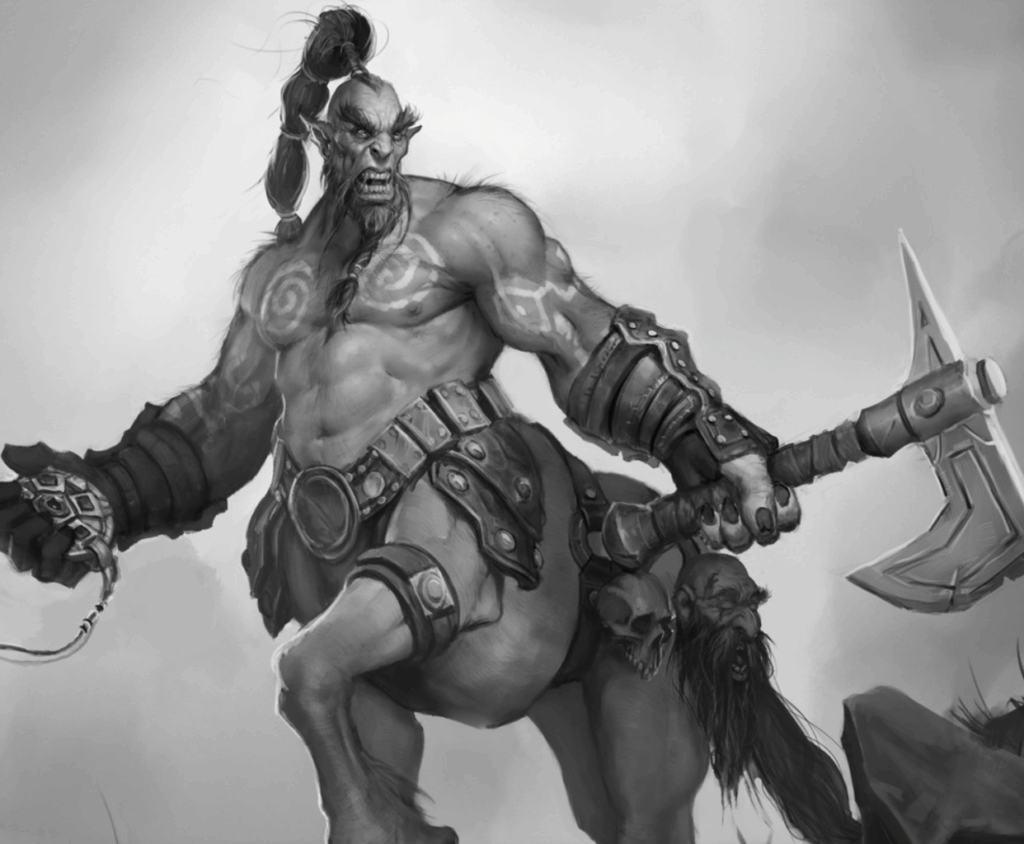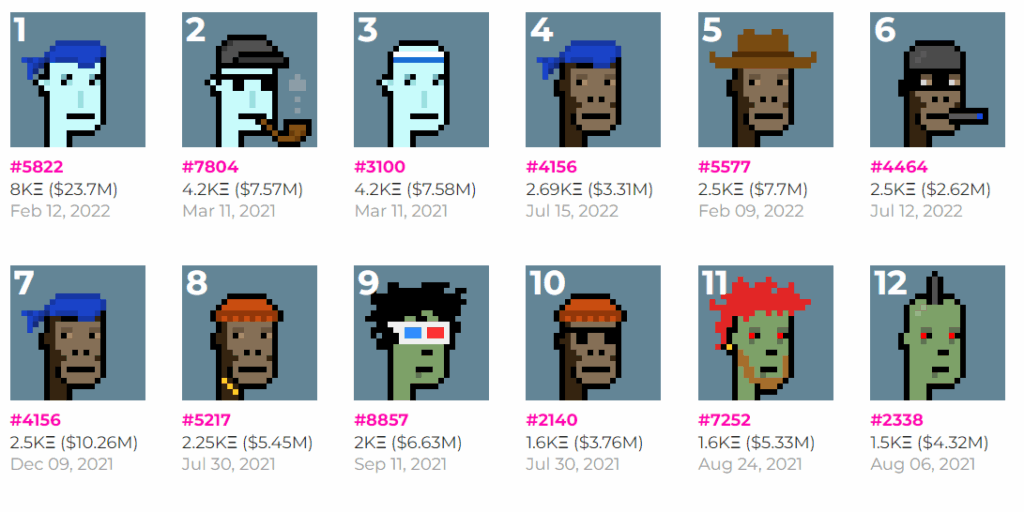Soul-Searching in Web3: What Are Soulbound NFTs?
Soulbound tokens offer a step toward a decentralized society with non-traded NFTs for identifying information, but there are concerns about how they’ll function.

Soulbound tokens might sound like stringing the enemy’s teeth onto a Viking’s necklace, but they’re a bit more modern than that. Still, a soulbound NFT (SBT) might be an impressive score—possibly even more clout-worthy than a Bored Ape.
Soulbound tokens could represent more than your taste and wealth… from your education and employment history to your insurance, taxes, and bank accounts.
These unique, non-transferable tokens could represent your accomplishments, your role in a community, or a form of identification. Let’s take a closer look at what soulbound NFTs are and how they could impact the future of Web3.
What are Soulbound tokens?
The idea was made popular by World of Warcraft (WoW).
Like in real life, there are plenty of WoW items you can simply pay for. But, a few special things are acquired only through experience—rare items that are too valuable to be bought and sold. If you want them, you must do the quest yourself, slay the toughest monster, or play the game as the developers intended.

Source: gmbinder.com
In WoW, soulbound items are ones you can’t transfer or sell. And that’s the concept behind soulbound NFTs. They’re unique, like profile picture (PFP) NFTs representing things that are uniquely you. Soulbound tokens can’t be sold, transferred, or given away. In other words, they’re your identity, albeit virtual. They enable others to determine who you are, what you own, and where you end as the rest of the world begins.
Remind me what NFTs are.
Non-fungible tokens (NFT) are distinct, non-interchangeable markers of ownership of a unique asset stored on blockchains like Ethereum. Imagine going to the bank and withdrawing $100. You wouldn’t care which $100 bill you got from the teller or which $20 bills they broke it into because which piece of paper you get doesn’t matter since they all represent the same value.
But, if you went to the bank to get your grandmother’s antique jewelry from her safety deposit box, you would want your grandmother’s jewelry and not someone else’s. Another family’s heirlooms might be lovely to look at, but they’re not the ones you want.
This example demonstrates what the “non-fungible” part of NFTs means. In fact, NFTs aren’t pieces of artwork, real estate, or music but are rather the ownership of those kinds of assets. And that ownership token can be sold or traded on NFT marketplaces—often for a lot of money.
CryptoPunks, one of the first Ethereum NFTs, were initially given out for free, but some of them have since sold for millions of dollars. The most expensive went for an astounding $23.7 million in February 2022.
As of August 2022, CryptoPunks has a total transaction value of nearly 1 million Ethereum (around $1.6 billion).

source: cryptopunks.app
On the other hand, soulbound tokens are non-sellable, non-transferrable NFTs, so you won’t find them on OpenSea or Rarible (even when they eventually do exist). They’ll stay with the wallet. In a white paper by E. Glen Weyl, Puja Ohlhaver, and Ethereum co-founder Vitalik Buterin, they describe soulbound tokens as a key step towards a decentralized society (DeSoc). They would represent the wallet holder’s credentials, similar to a résumé but with the social currency of the wallets that issued them.
So, instead of just saying you graduated from Yale, the official Yale University wallet would issue a soulbound token of your degree to your wallet—no more doctoring fake diplomas or listing your friends as employment references.
How do soulbound tokens work?
There’s already a social status attached to many NFTs. It’s easy to understand how the ownership of an asset, like the rights to a song or a plot of digital real estate, can be valuable. But what about gaining membership to an exclusive club or retaining the rights to a particular piece of digital artwork?
Bored Apes and CryptoPunks are the poster children of NFTs because their scarcity and value made them something one could brag about owning. The value of these NFT projects is subjective, but some holders see being part of an exclusive community as worth the high price tag.
Soulbound tokens could represent more than your taste and wealth, though. Just like soulbound items in WoW, these non-transferable tokens could be earned through experiences like completing a college education or creating a work of art. A soulbound token would be similar to Proof of Attendance Protocol (POAP) tokens that are minted and added to your Ethereum wallet to show that you attended an event. However, POAP tokens can be traded, unlike soulbound tokens.
A soulbound token could be used to create an NFT-based identification where your crypto wallet functions as your virtual identity. Everything from your education and employment history to your insurance, taxes, and bank accounts could be tokenized and encoded into your wallet. They can even double as governance tokens that enable you to participate in an online election. SBTs might make all that information easier to verify and harder to forge.
So, are these cool or creepy?
If it’s all sounding a bit dystopian to you, then you’re not alone. Here are some of the issues with how soulbound tokens and a decentralized society might function—or malfunction—that are worth considering.
How bound is soulbound?
Their impressive name creates the idea that soulbound tokens are eternally linked to an individual owner. But, even when you permanently tie an NFT to a DeFi wallet, you can still give away the wallet itself. There’s nothing inextricably tying the wallet to its owner, so one could get screwed out of their soulbound tokens if they lose access to their wallet.
Keep your frenemies close
Even if you try to hold onto your wallet, it could get lost, stolen, or hacked. Losing your crypto wallet always sucks, and you can’t just hope that a kind stranger happens upon it and returns it to its rightful owner. How to regain access to a lost or stolen wallet and the NFTs containing your identification, medical records, and financial details deserves serious thought. All the more reason to get a hardware wallet.
Vitalik proposes a community recovery model which relies on social relationships. In this model, a group of people holds pieces of information to help you get your wallet back. While Vitalik believes this will provide reliable security, there are potential concerns. Personal relationships aren’t constant—there might be a falling out, bad blood, or even an unexpected death that breaks the chain.
No more secrets
How well can things be hidden? The blockchain is public, so if you’re automatically issued a soulbound token that you don’t want to share, then anyone can see what you have by looking at the blockchain. Insufficient privacy is the major flaw currently holding back the utility of soulbound tokens.
This is way out in the future, right?
While SBTs for education credentials and official identification are still in the thinking stages, there are soulbound tokens in use in some Web3 spaces.
Pudgy Penguins, a PFP NFT project that sold over 30 thousand tokens, issued two soulbound tokens to members of their community in 2022. What these SBTs enable is unclear, but in a thread posted by the Pudgy Penguins’ Twitter account, they said that the tokens of appreciation “will stand for much more in the future” (soon).

source: @pudgypenguins Twitter.com
The popular NFT trading game Splinterlands includes cards that function as SBTs, as well. Most cards in the game can be bought, sold, and rented, but certain powerful cards can only be earned by playing and leveling up in the game. These cards stay with your account and cannot be rented or sold. They also take years to build up and use, so you can’t simply pay to win.
Because the value of the rewards for winning in Splinterlands can be quite high at times, these cards bring a lot of value to the accounts that hold them, even if they can’t be sold.

source: splintercards.com
How can soulbound tokens make me money?
Despite the often explosive returns on investments in NFTs, soulbound tokens are unlikely to yield the same. Since they can’t be bought or sold, even a rare, coveted soulbound token won’t promise a big payout because there’s no marketplace to trade or sell these tokens.
But if web3 developers have taught us anything, it’s that the improbable can become the norm. While there’s no marketplace yet, it’s possible that methods for renting or fractionalizing SBTs could be developed in the future. Their scarcity could ultimately make them valuable assets.
There could also be ways for SBTs to improve your future portfolio. If games, events, or companies issue soulbound tokens to attendees and early supporters (like Pudgy Penguins did), recipients could reap certain benefits. Those non-transferrable and non-purchasable tokens could grant early access to future projects, discounts, inclusion in a community decentralized autonomous organization (DAO), or access to presales or pre-mined tokens.
Soul-searching in Web3
Whether it’s in a game or in life, experience lets us access our potential. And sometimes, all we need is to prove that experience.
Soulbound tokens are experiences, like where you’ve been and what you’ve done. They offer a record of your life that can be verified with a glance at the blockchain.
While Souldbound NFTs can’t be bought or sold for a profit, what’s it worth to have a degree from a prestigious school? Or to claim that you were an original employee at a now-Fortune 500 company? What’s the value of a provable social currency—bonding with someone over a concert or showing you worked on a groundbreaking political campaign?
In a decentralized society, you can’t put a price on these life experiences or the future possibilities they may unlock.
